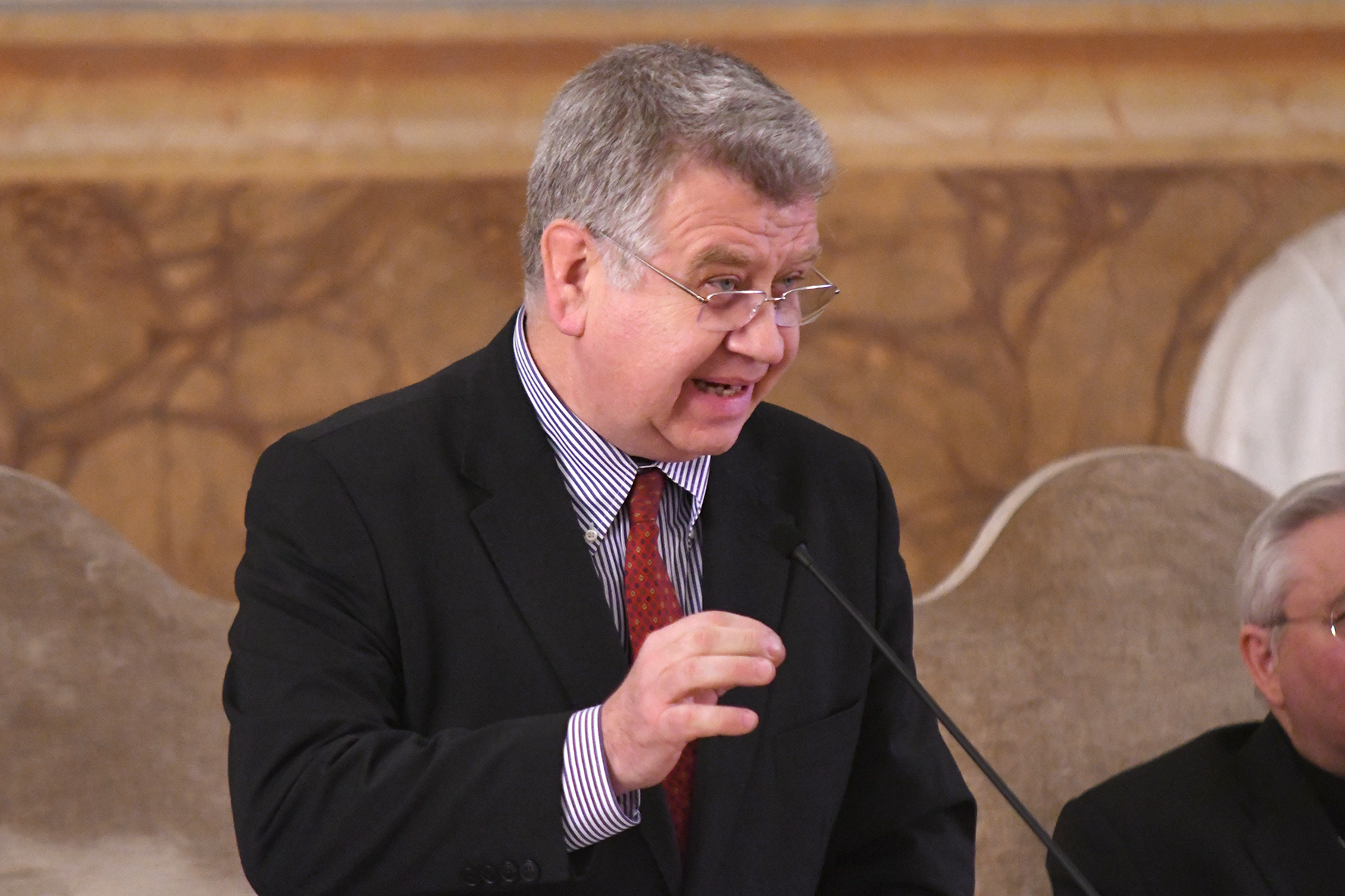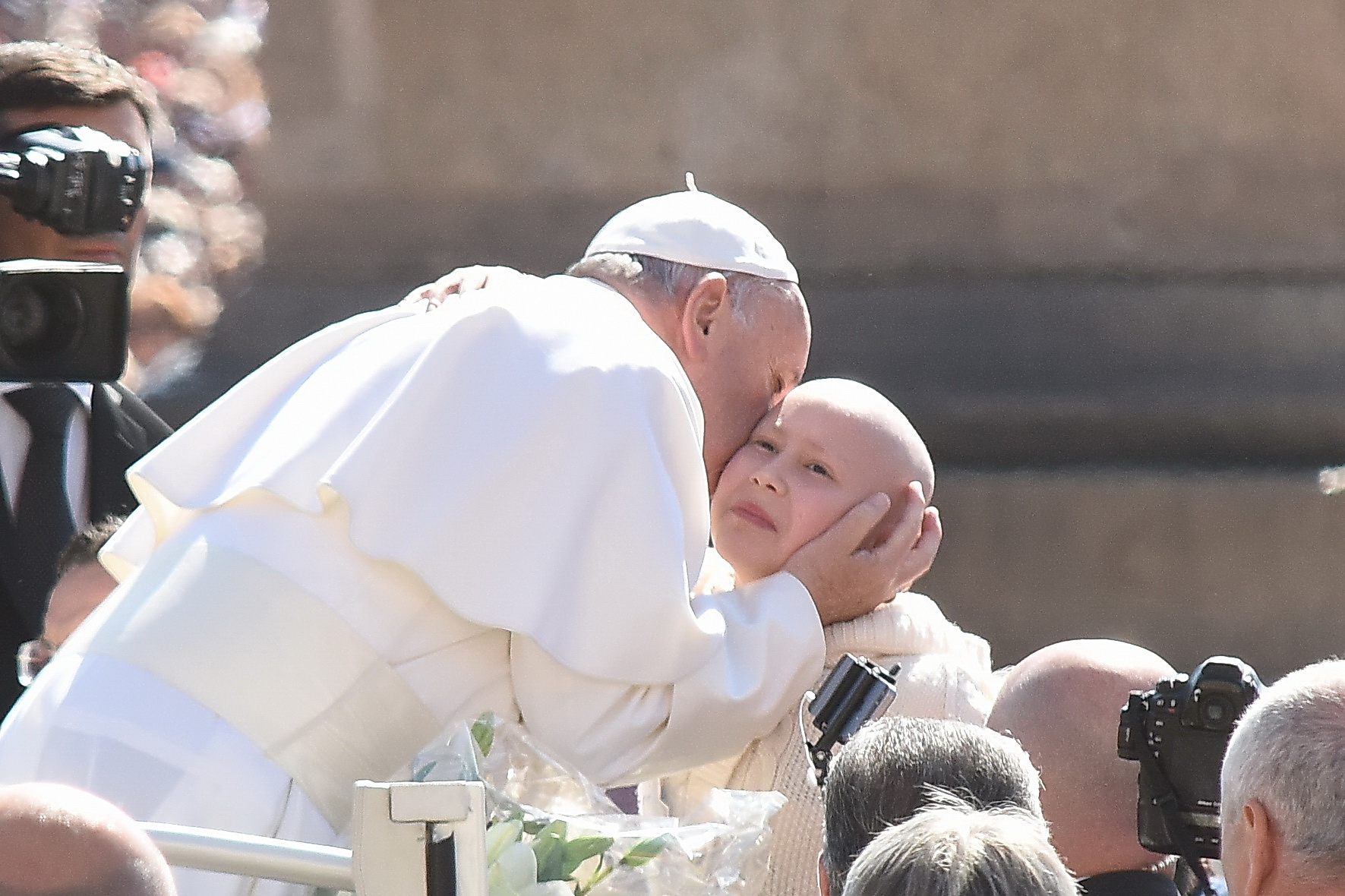
Before today’s complex international scenario, the crisis in democracy and the resurgence of sovereignist stances , fomented on social networks that make reality increasingly hard to interpret, Giuseppe Tognon, History of History of Education Professor at Rome’s LUMSA University, President of the Alcide De Gasperi Foudnation in Trent guards us against a danger: “For far too long we have been under the illusion that freedom is like water that can be wasted. But peace, freedom, development and justice are not mere words. They are the cardinal points of a universal vision of life rooted in the recognition of human fragilty.”
European political life is dominated by debates on the crisis of traditional political systems and the advance of so-called populist or sovereignist movements and political parties invoking a break with the past. Is it a veritable disruption of the established system? And if so, what has been “broken up”?
With no doubt we are facing a deep crisis, a political eruption, but I don’t think it’s a crisis in the system. I don’t see the signs of a new political system. I don’t see the birth of a new political thought. In fact I’m afraid that the intention is to prolong anti-European polemics as much as possible in order strengthen these movements’ presence in the government, or to enter it.
Indeed, the worn relations between institutions and citizens have been shattered.
 Populism is the symptom and not the cause of a deep crisis in confidence in the virtues of a political system that has definitely become “secularized”, losing all trace of sacredness. Consumption mechanisms have penetrated the political realm and the commodity that can be more easily obtained is the one offered by leader influencers, skilfully proving to be “like each one of us”, thinking and wishing for things we are familiar with.
Populism is the symptom and not the cause of a deep crisis in confidence in the virtues of a political system that has definitely become “secularized”, losing all trace of sacredness. Consumption mechanisms have penetrated the political realm and the commodity that can be more easily obtained is the one offered by leader influencers, skilfully proving to be “like each one of us”, thinking and wishing for things we are familiar with.
Has political disappointment played a role?
It’s a complex issue that involves the collective sentiment of wealthy and mature societies. There are many variables but it’s a linear scheme: we are not facing a political void because society is afraid of political voids and because institutions continue to function. Moreover,
For the most part, the leaders of so-called sovereignist parties are the expression of the previous ruling class.
They are either turncoats or people who wormed their way through old and dated political Parties. They are chiefly the product of powerful communication machines or the result of the ignorance of elite groups which, instead of carrying out in-depth research and verifying information, prefer showmanship or hearing themselves talk, as has happened with Trump in the United States, who can be said to have won the Presidential election thanks to no one besides himself. This way of seizing power is age-old, it proved successful also in emblazoned homes such as those of European peoples parties or those of the Social-Democrats.
Did it also happen in Italy?
In this respect Salvini is just like Renzi. And he could end up like Renzi did. In addition to these kinds of leaders there are those who created new movements availing themselves of political communication tools such as Grillo in Italy, Podemos in Spain, Macron in France, the new Swedish Democrats in Sweden, the FDP leaders in Germany, and so on. They exploit collective isolation to occupy the political space of declining traditional parties, in most cases promoting the advancement of improvised and inhomogeneous leadership groups. In short, we have witnessed a rift, but assuming that it triggered the reconstruction of Western democracy would be far-fetched.
The problem is to face the crisis while averting the collapse of the common European home.
In this respect sovereignism (resuming national control, practically alone), signals the inability to comprehend complexity rather than the inception of a new political doctrine. Sovereignism is the act of giving up: in the middle of the ford it seeks to bring the people back rather than helping them cross the pond. But nobody knows where Sovereignists’ Promised Land is to be found, while that of the survivors of a defeated ruling class is worn out because socialism Christian personalism and humanistic and liberal doctrines have failed to carve out a new identity, overcome by laziness.
Some speak of a crisis in democracy, others push for envisioning (or hope for) its end. What is your opinion?
It’s a decisive point, a watershed. You can say anything about the democrats, except speaking ill of their common “mother”, democracy. Even the Athenians – the first to experience it, rather unsuccessfully – had understood that democracy is a “stupid”, almost trivial political system,. The multi-faceted feature of democracy is known to all scholars, thus we must be brave enough to break the last contemporary taboo and accept to reason on the fact that democracy could disappear. It’s a subtle dilemma:
Democracy needs values deriving from past experience and which are unrelated to the political system, but these personal values are insufficient if they lack the support of a regulatory framework. Which is like saying that good intentions are not enough, they require the joint creation of collective codes of conduct.
First of all it is necessary to accept the possibility that representative liberal democracy, the European model that brought together the so-called Western societies, is not a “destiny” or the genetic trait of Western politics. Democracy is not “teleologic”, namely, is it unable to draw the world on its side. Since ours is the longest period of prosperity and peace in Europe in the past five centuries, we see our democracy as something natural, and we don’t venerate it as our political fathers did at the end of the Second World War. The great period of 20th century pax europea, which came to new life as a result of democracy and rule of law, is nearing an end.
The democratic system we managed to create is not gifted with independent or demiurgic powers, and it ultimately sucks the milk of its leader. The Europe of De Gasperi, Schumann, Monnet, De Gaulle, Churcill, Adenauer, was the vision of “heroes” formed in the first half of the past century, who had seen – or thought they had – history’s darkest pages. They were visionaries who had a deep experience of poverty and war, coupled by a firm belief in universal values.
For far too long we have been under the illusion that freedom is like water that can be wasted.
But peace, freedom, development and justice and not mere words. They are the cardinal points of a universal vision of life based on the recognition of human weakness.
Marco Revelli wrote that “populism emerges when the people no longer feel represented. It’s a ‘childhood disease’ of democracy when it’s not yet time to reap the fruits of democracy. It’s a ‘senile disease’ of democracy when political life seems to be coming to an end.” Do you agree?
Yes and no. Yes because it portrays the opposite extremes of the history of Europe’s political life, from the small city of Athens to the large, and worn-out structure of the European Union. No because it doesn’t tell us enough about Europe’s current diseases. The lack of representativeness is a problem, but only in terms of an ideal, moral delegation, for from a technical viewpoint, representativeness means guaranteeing free elections also in totalitarian democracies. And the European Parliament is proportionately elected by European citizens. Indeed, when the image of political life is loathsome, or it is presented as such, the natural reaction of large masses of voters is to hole up in the “popular” cradle, which is a way of pulling oneself together when we are left without a leader or ways to surrender, thereby entering an enclosure that others have cunningly set up for us.
What is meant with the term “people”?
“People” [the] has two fundamental accepted meanings: the first refers to popular will expressed according to democratic rules, in full respect of the autonomy and rights of all citizens. The second refers to the idea of a people endowed with its own personality, its own soul, and its own destiny. This latter, tribal idea is dangerous and delusional, for it paves the way to the destruction of limits and the confusion of roles.
If representative democracy is seen as a large party game, then clearly, like all games, it will be valid until its rules are fully respected and provided the pleasure of playing, while reversing the table will cause everything to collapse.

Is there a direction in this crisis? Or are we treading on unknown land?
I believe that we are experiencing the last traces of the 1968 protests, yet today we are experiencing political forms of protests. Today – and not back then – political life is under attack. Fifty years ago the object of criticism was social behaviour, gender relations and all the archaic forms of authority, including forms of rural authority, but politics was a mirage showing the way out, the horizon of transformation that would bring the people in the spotlight. Instead, today freedom is totalizing from a personal perspective while politics appears to be the last obstacle in view of the achievement– and that’s the problem – of nobody knows what. In fact, politics and the State had made us believe that they would take care of everything. It’s a severe betrayal of reality and of the limits of the public realm, for it downplays the fact that only laws can counter the slavery of modern capitalism along with increasingly harsh social, fiscal and intellectual injustices. I would like to make a basic premise: today’s global political crisis is the completion of the process of transformation of ideas into things resulting from the alliance between capital and technology that politics should not have conformed to. But political elite groups thought they could interact on a par with science and with the domains of industry and research.
In democracy anyone can be elected, and if the person who is elected believes that by virtue of his role he is elevated to the heights of the learned and the rich, he is wrong and demeaned.
And when intellectual elite groups – instead of reaffirming their independence – act like sycophants towards “nondescript” elected candidates, they betray not only them but also themselves. Ignorance – not knowledge – is a major cause of the present crisis of elite groups. They seem to no longer be able to understand the basic rules of life and they create phoney and fatuous merit systems. However paradoxical it may seem, the real problem is not populism but a false form of elitism, the lack of ideas, the want of someone capable of making not evaluations that aren’t only technical. I believe that the future political horizon should spring from education, it should develop in universities, arts and literature. Instead, we are full of “experts” and “pundits”, but we are short of intellectuals capable of contemplating the world and of shaping thought.
You claim that polarization is the phenomenon characterising our present times, which for Europe is a “historic regression.” Why and how can it be countered?
I have spoken and written against “polarization” because I believe that the strategy of reducing the complexity of human relations and economic problems to a mere contraposition entails the dangerous recovery of the brutal law of struggle. Human life is never binary. Our brain is multipolar and it experiences complex biochemical processes as a huge opportunity. Historical memory is by definition perspectival and nonlinear: it changes according to the observation point, it varies depending on the questions and tasks we decide to address. And Western culture, including Christian culture, has always practiced the art of pluralism and conflict resolution on different levels, so as to create a plurality of encoded and control systems and thus enhance a plurality of skills.
Polarization advocates the opportunity of simplification, but what it really does is to sever relationships.
It should also be distinguished from the exercise of polarization, namely the ability to engage in confrontations within the respect of rules and in the mutual recognition of the value of different viewpoints. Polarity is part of daily life and of sexual, creative, spiritual life; it trains us to respect rules and remain faithful to ourselves whilst feeling attraction or rejection. But current polarization is the result of a radical trivialization of life; it is a dreamlike detachment from complexity and a way of escaping responsibility.
What is the role of the Church in this respect?
 To prevent polarization from becoming the style of new millennium Christianity. To avoid the encirclement syndrome. To avoid the purism of belonging to a chosen lineage. To avoid the slovenliness of saying “I will do what I can”, without hesitating to harm oneself if it helps hurting others. Practising prayer means not wanting our viewpoint to prevail and accepting someone else’s. Prayer is the art of patience. Forgiveness means relieving pain. Endurance makes us stronger. Also from the theological point of view.
To prevent polarization from becoming the style of new millennium Christianity. To avoid the encirclement syndrome. To avoid the purism of belonging to a chosen lineage. To avoid the slovenliness of saying “I will do what I can”, without hesitating to harm oneself if it helps hurting others. Practising prayer means not wanting our viewpoint to prevail and accepting someone else’s. Prayer is the art of patience. Forgiveness means relieving pain. Endurance makes us stronger. Also from the theological point of view.
We could try to rethink the history of the Church in terms of the needs, not only of the duties.
The Lord has given us less duties than certain priests, and in many occasions he renounced to condemn. If the Mercy of Pope Francis will make us understand that many mental processes are legitimate and useful to understand but not spiritually necessary, new prospects for cooperation between Christians and the world will open up. Christians will be recognized as those who are capable of renouncing the claim of self-sufficiency; those who don’t dream of reconquests. Those who, most of all, can teach critical thinking and irony. For powerful algorithms and huge teams of communication experts stand behind today’s political leaders, using “meanness” and “goodness” as the pedals of a car to be alternatively pressed according to the curves.
Behind the Pope, the Bishops, and the Christian faithful there is no algorithm. Behind them we find the Gospel.
Or at least it is our hope. The Gospel is not an algorithm, it is good news and discourse. Thus the Church is the people sharing the story of the life of Christ, reflecting on the marvels of man, with passion. And history has entrusted her with the task of sustaining and rethinking democracy, namely, to consider herself as sister to a political system that it fought against across the centuries, but which in reality was born of European religious history. A grandiose example of polarity, not of polarization.











